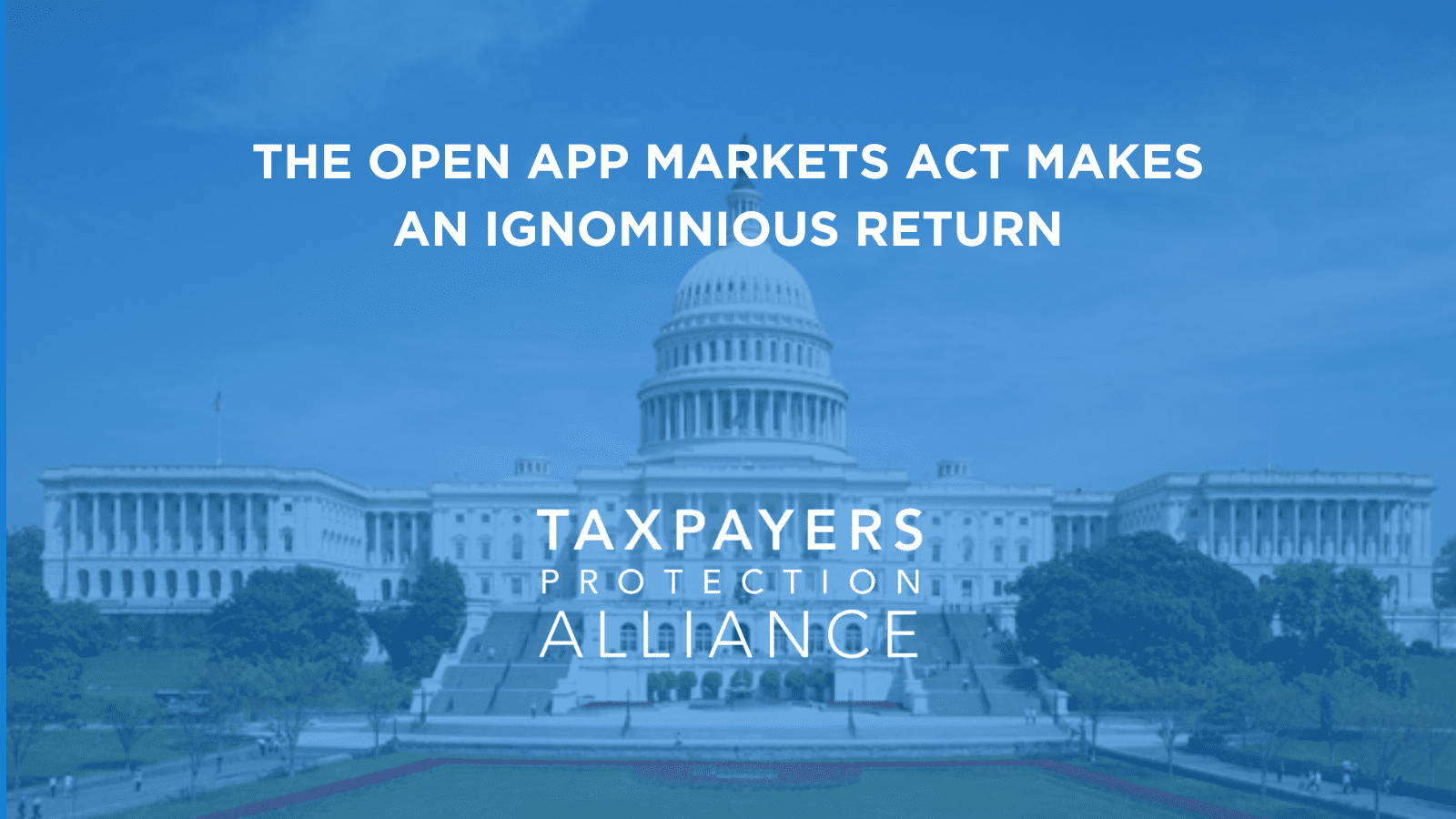
The Open App Markets Act Makes an Ignominious Return
Taxpayers Protection Alliance
June 24, 2025
Today, the Open Act Markets Act (OAMA) was reintroduced in the Senate by Sens. Marsha Blackburn (R-Tenn.), Richard Blumenthal (D-Conn.), Mike Lee (R-Utah), Amy Klobuchar (D-Minn.) and Dick Durbin (D-Ill.). “The bill seeks to prohibit app store providers from disadvantaging developers and would allow them to tell consumers about lower prices and have alternative methods to download apps,” Bloomberg Law reports of this, OAMA’s latest version.
Despite consumers’ demonstrated preferences for secure digital platforms and operating systems, lawmakers think they should intervene to break open those systems.
A primary complaint of OAMA’s advocates is that device users have difficulty downloading applications from unvetted third-party sources. This practice, known as “sideloading,” is essentially banned on iOS devices and discouraged on Android devices. This, says the OAMA brigade, is an unconscionable restraint of competition that harms the prospects of third-party app developers. On its face, the argument tracks. In reality, it falls apart.
There are weighty reasons why sideloading is disfavored. Venturing outside the safe confines of vetted app stores can expose users to the dangers of malware or app developers with shady data practices. This is why Android users — who can sideload if they configure their settings properly — fall victim to malware infections at a far higher rate than iPhone users. Within app stores, alternatively, flawed and nefarious apps are largely kept off virtual shelves, allowing users to shop in relative security. As the Taxpayers Protection Alliance Foundation’s App Security Project noted last year, Apple “says that, ‘In 2023, more than 1.7 million app submissions were rejected for various reasons, including privacy violations and fraudulent activity.’ Moreover, the company ‘terminated close to 118,000 developer accounts” and turned down “more than 91,000 developer enrollments.’”
Current ecosystems allow for consumer choice. Even though presumption is largely against sideloading, those who wish to sideload can. For most people, however, the benefits of safety outweigh the costs of losing the flexibility to sideload. History show that users do not want completely open systems that provide maximum flexibility and freedom. This might sound attractive, but it comes with tradeoffs — including security tradeoffs — that just aren’t worth it. That is why the tech companies that have managed to gain success by fulfilling market demand haven’t offered free-for-all platforms and operating systems.
The supporters of OAMA are ready to upend this balance, even though consumers have consistently voted with their dollars for closed and relatively closed ecosystems. It takes a certain type of hubris to assume consumers don’t really want the things for which they’ve shown a consistent preference. And it takes a certain sleight of hand to assume that voters won’t notice that their elected officials are trying to degrade the digital services they rely on.
OAMA has failed to clear previous Congresses. It’s time for it to fail again.
